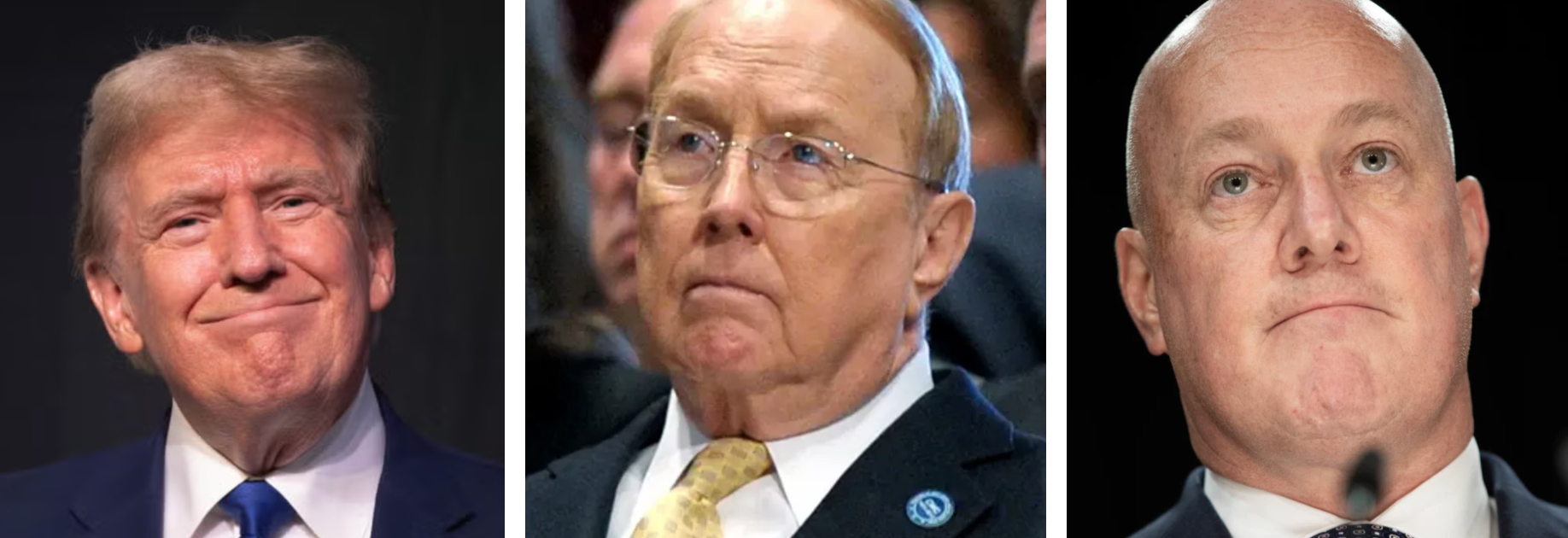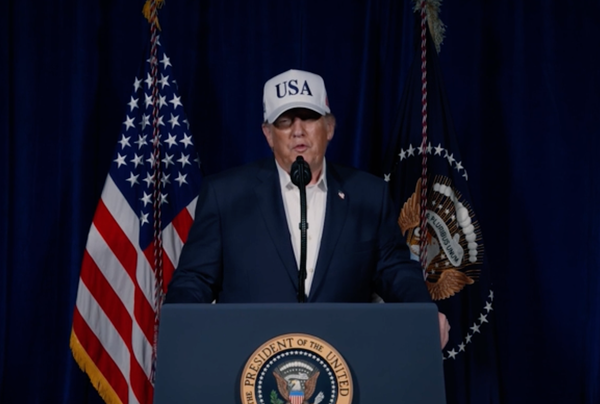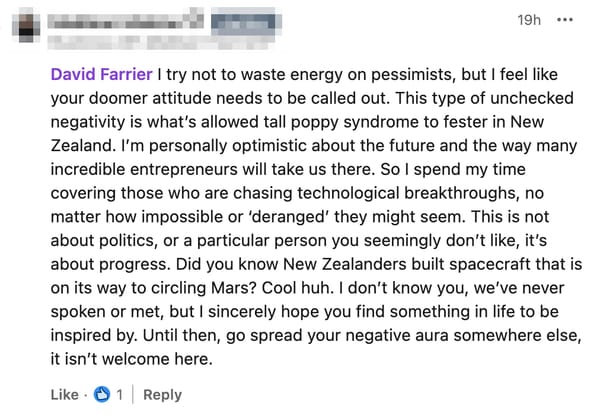The 48 Hours Leading Up To An Execution
I traveled to Missouri to be with those desperately trying to stop the execution of Marcellus “Khaliifah” Williams.
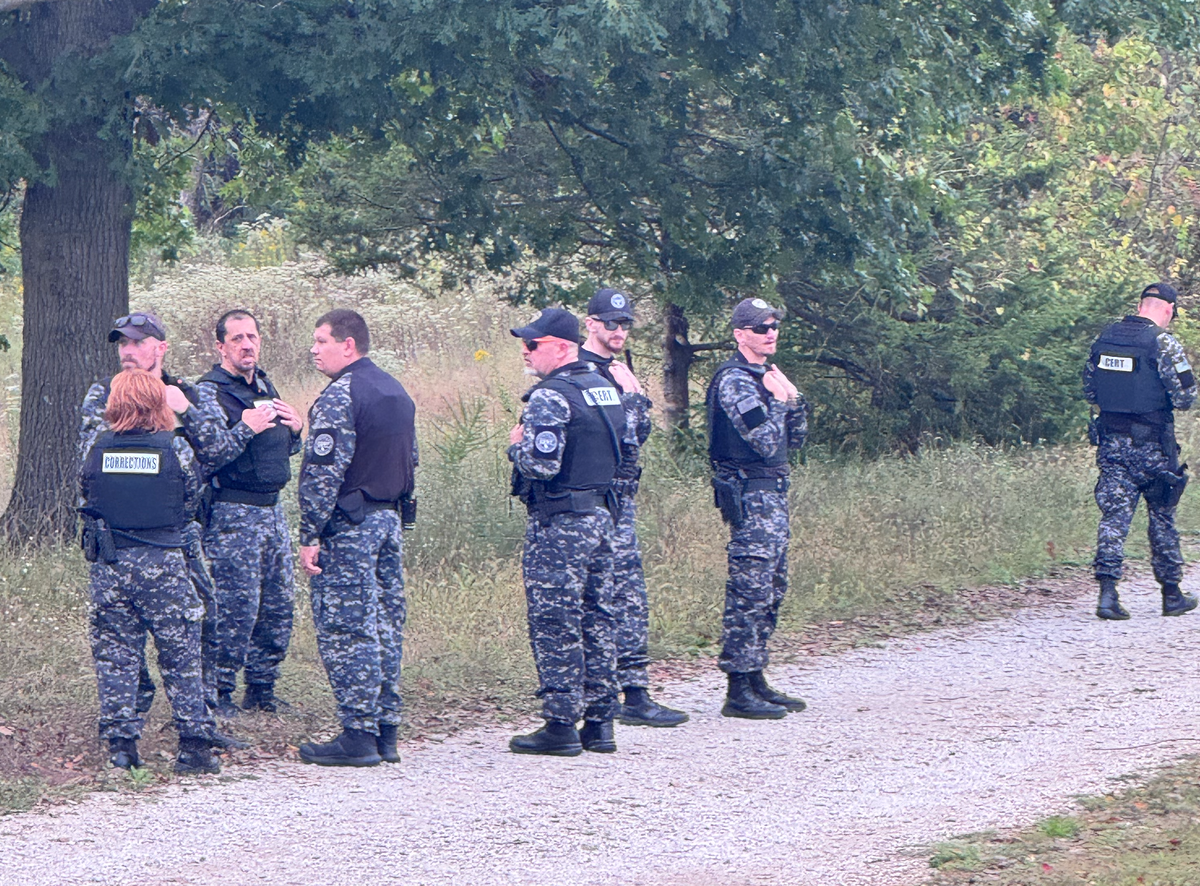
Note: This is obviously a very heavy topic — it took me three days to manage to write it — so please read with care. In saying that, in amongst the awfulness I think this piece also contains some hope, and plenty of humanity.
Thanks to those of you who pay for Webworm and support my work — you keep all my public interest journalism un-paywalled and ad-free.
Hi,
Like many of you, over the last month I started to hear a lot about the case of Marcellus “Khaliifah” Williams — a man who was about to be executed by the State of Missouri.
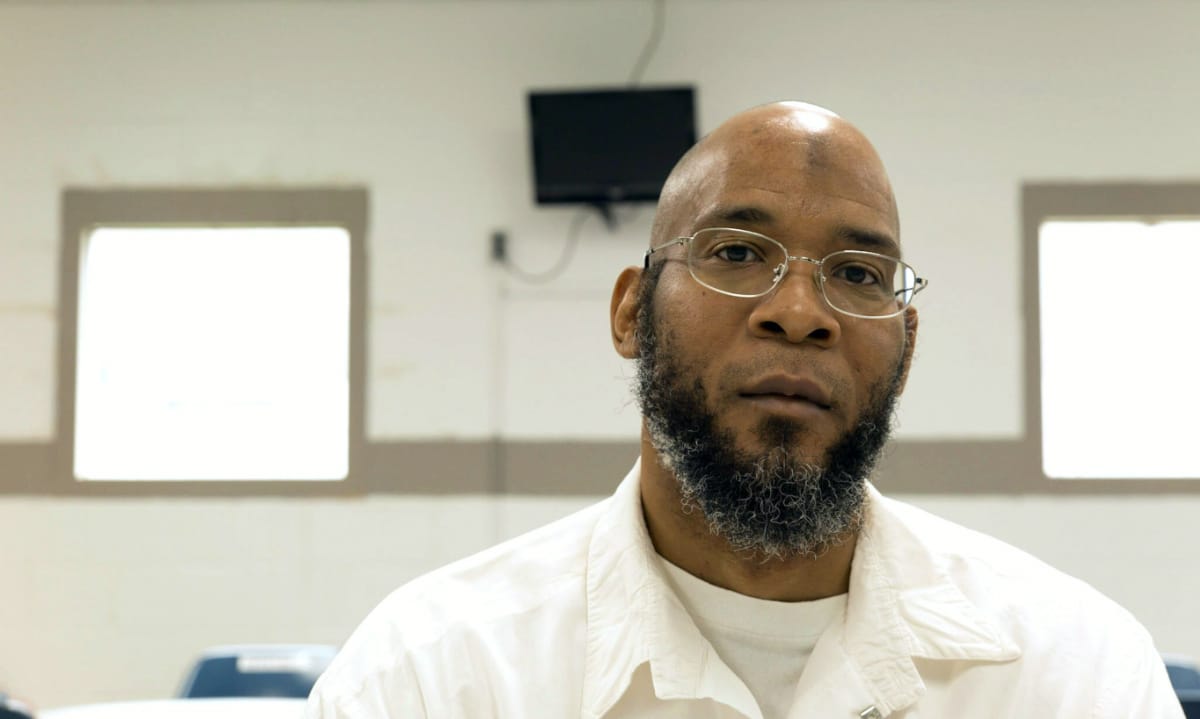
This was happening amongst a lot of talk of him being innocent — especially after it was revealed there was zero DNA evidence linking him to the murder.
I have always found the death penalty abhorrent. Maybe this is because New Zealand doesn’t have capital punishment: We used to — the first a public hanging taking place in 1842. New Zealand executed 85 people before it stopped the practice in 1957, swapping it out for “imprisonment for life”.
I found it jarring arriving in America, knowing that 27 states still execute people, and with quite a bit of gusto. About 1600 people have been executed in the US, and counting. There have been a lot of executions this year alone — and there are no signs of it slowing down.
The idea of it being legal to kill anyone — no matter what they’ve done — just makes me feel really unsettled. Then there’s the whole issue of when someone’s executed, only to be found innocent after the fact.
There are plenty of examples of that.
Marcellus Williams’ case was an example of everything I hate about this system — so last Sunday, a few days before his scheduled execution date, I flew to Missouri to find out what was going on.
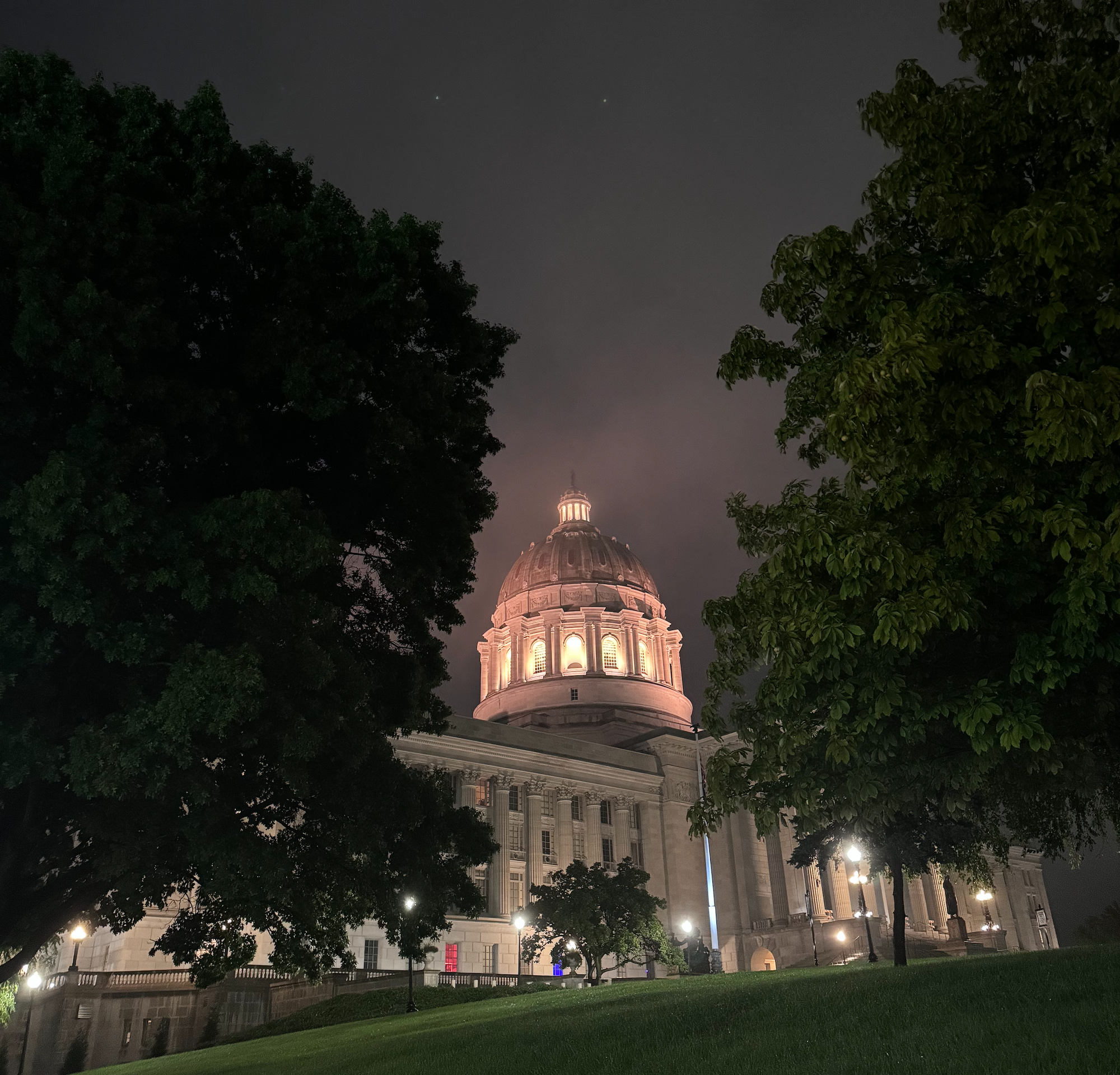
Touchdown
I flew out of LA at about 5pm on a Sunday, and landed in St. Louis at about 11pm.
When I wake up on Monday morning it’s raining a lot, and lodged in the front of my mind is the fact that tomorrow at 6pm on September 24th, a 55-year-old black man called Marcellus Williams is going to be executed.
I’d made this trip last minute, so didn’t have a big plan in mind beyond going to the Capitol — a two hour drive west in Jefferson City — and just sort of canvassing any protests or chaos going on.
Last night I’d haphazardly emailed a few organisations, lawyers and state reps in the hope someone might get back to me with an interview or information.
In the meantime, I’d tried to catch up on the case.
Back in 1998, Lisha Gayle, a local newspaper journalist, was stabbed over 40 times with a kitchen knife after someone broke into her home.
Marcellus Williams was convicted and sentenced for her murder in 2001.
But here’s the thing: Marcellus has always maintained he’s innocent. No DNA evidence linked him to the crime. Not only this, but over the last few months the current St. Louis county prosecutor has said the execution should be called off. That’s not exactly normal prosecutor behaviour unless something is badly out of whack.
On top of this, the victim’s family has also been pushing for clemency, saying that they “define closure as Marcellus being allowed to live. Marcellus’ execution is not necessary.”
From what I could tell, no one really wanted Marcellus to die — except one man who really wanted him to die: Missouri Governor Mike Parson, who’s pushed for Marcellus’ execution for as long as he’s been governor.
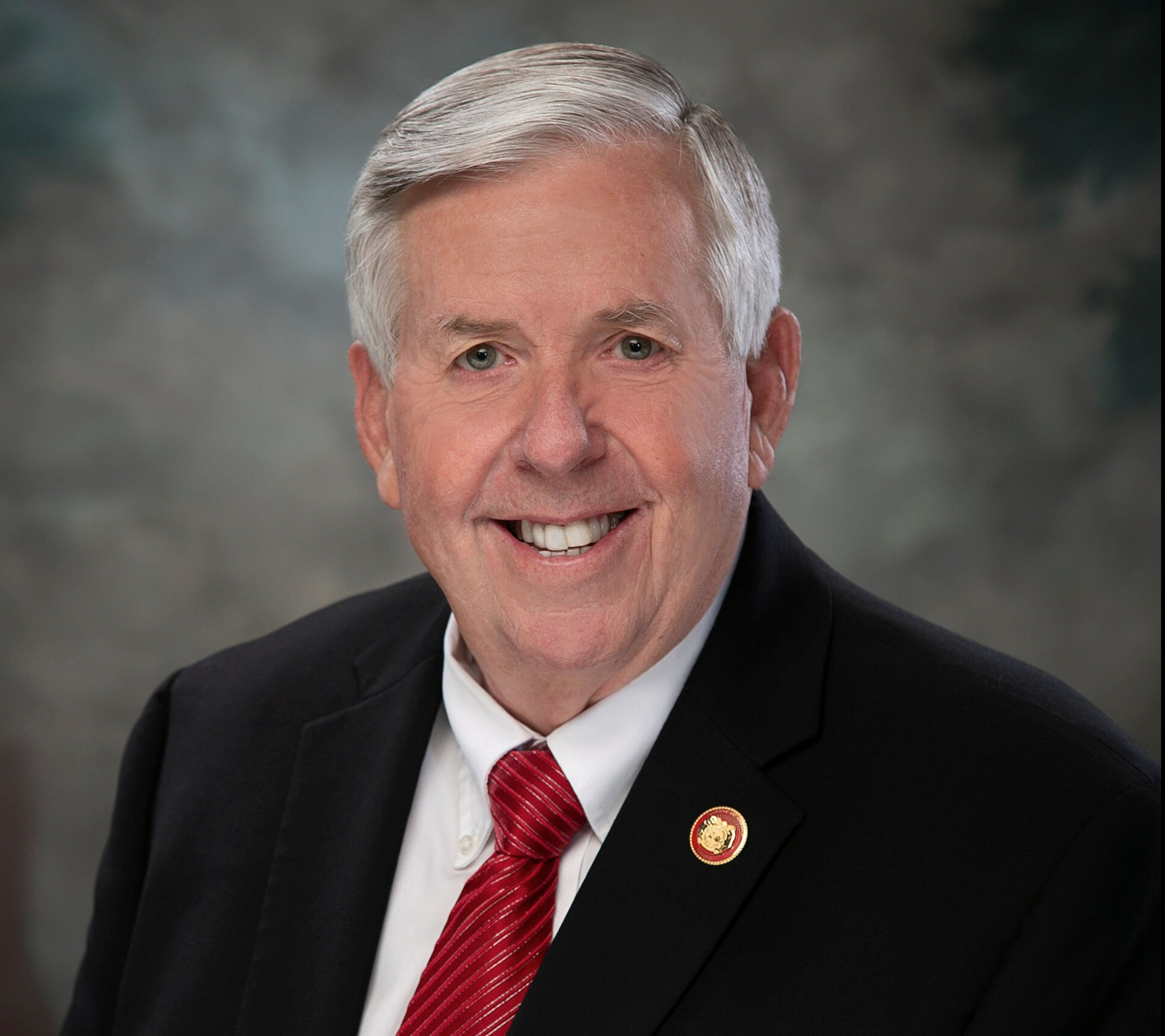
Meeting Some Anti-Death Row Activists
I’m in a small office building opposite the Capitol building, where members of Missourians To Abolish the Death Penalty (MADP) have gathered. They’d replied to my hasty email, and welcomed me with open arms.
A few hours ago, Missouri’s Supreme Court heard arguments from Marcellus’ legal team — as well as the prosecuting attorney, who’d made it clear the prior administration had made some pretty major errors in their case.
I figure while I wait to find out how the Missouri’s Supreme Court rules, I might as well go hang out with some activists. There’s a flutter of excitement when I walk in as huge pop star Chappell Roan has just posted about the case.
Right now, co-director Michelle Smith is dealing with fake Twitter accounts pretending to be Marcellus.
Sometimes when people are executed, people start putting out fake GoFundMe’s. I’m afraid this page is going to do that because somebody in another comment said he’s also Twitter. I said, “He’s in prison and he got no internet, so he’s not on Twitter!”
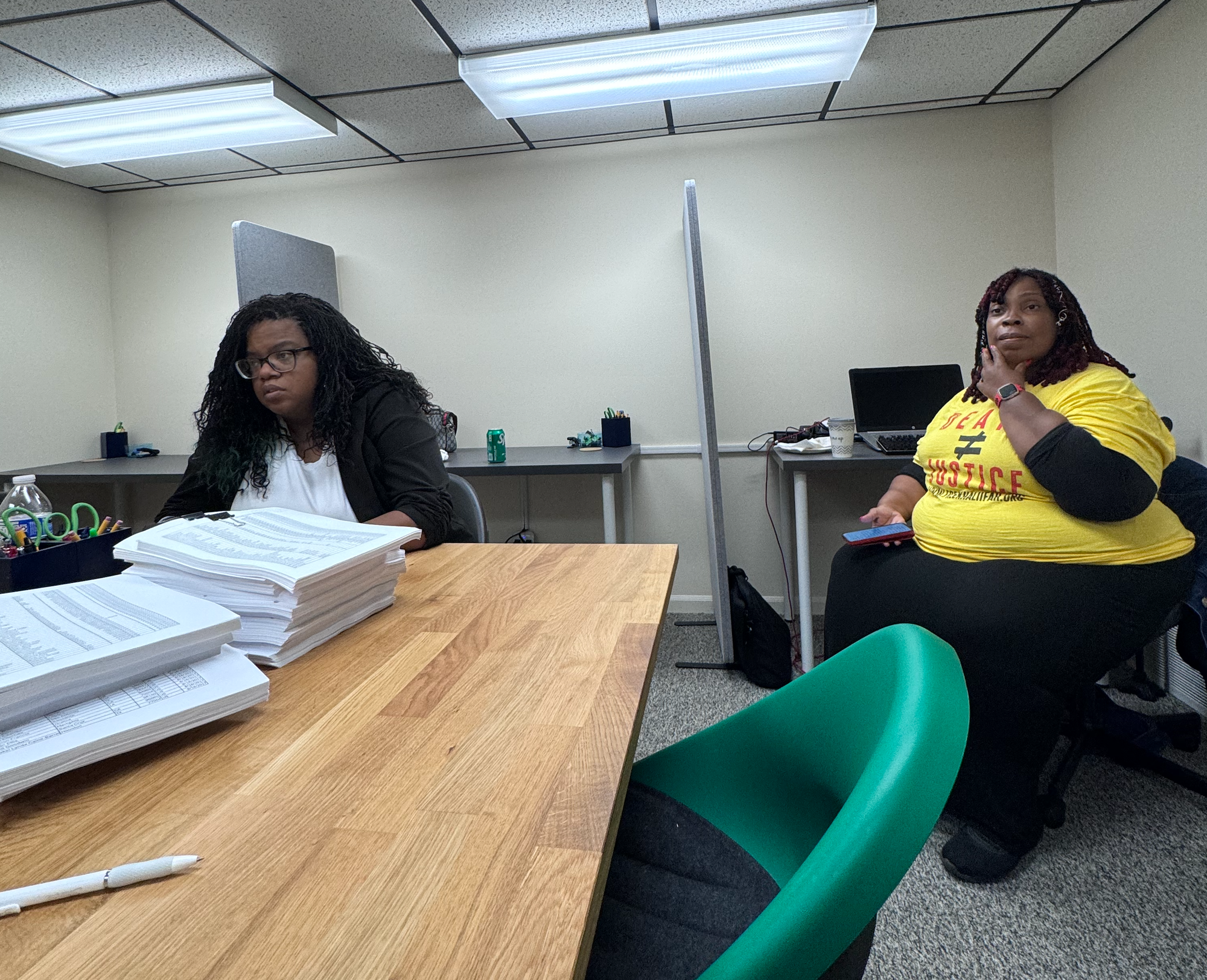
Michelle has this very open friendly face, her black hair streaked with red dye. She says she’s tired. She worked through four executions last year, and says there have already been two this year. Right now, she’s not feeling all that great about how court went this morning.
Honestly, this morning was a little upsetting for all of us. It is a problematic case. And [the Attorney General’s] perspective on it is very problematic for us. And this is a man’s life.
The Attorney General’s Office has relentlessly pursued this execution — despite so much dicey stuff with this case. The conviction was partly based on two eyewitnesses who were paid for their testimony. And as I said earlier, no DNA evidence links Marcellus to the crime.
And the current County Prosecuting Attorney admits big errors were made by the prosecutors back in 2001 — including mishandling the knife, and excluding black jurors. Michelle goes on:
The prosecutor came forward, filed a motion with the court and said, “Judge, this case is problematic. This person’s likely innocent. And 20 years ago, my office messed up.”
We should be outraged because our courts, our judges in our State Attorney have basically told the local prosecutor, “We don’t care what you’re talking about. You don't matter.”
And somebody asked me like, “Who’s beefing?” And I’m like, “The Prosecutor and the State are beefing”. Now, Marcellas is caught in the middle, right?
I ask how he’s doing. They’re in semi-regular contact.
So Marcellus is a spiritual leader at the prison. He’s an imam. He’s Muslim. And so in Islam, his name is Khaliifah. And so with being a leader of so many other young men doing this spiritual study that he's done for so many years, he has a great outlook on what's happening. And so he called me yesterday morning and we talked about that.
He’s always very okay. He’s like, you know, “What’s going to happen is what’s going to happen. You know, I’m right with God, with my family, and I appreciate you all fighting for me, but I'm okay.”
So he's always had that perspective.
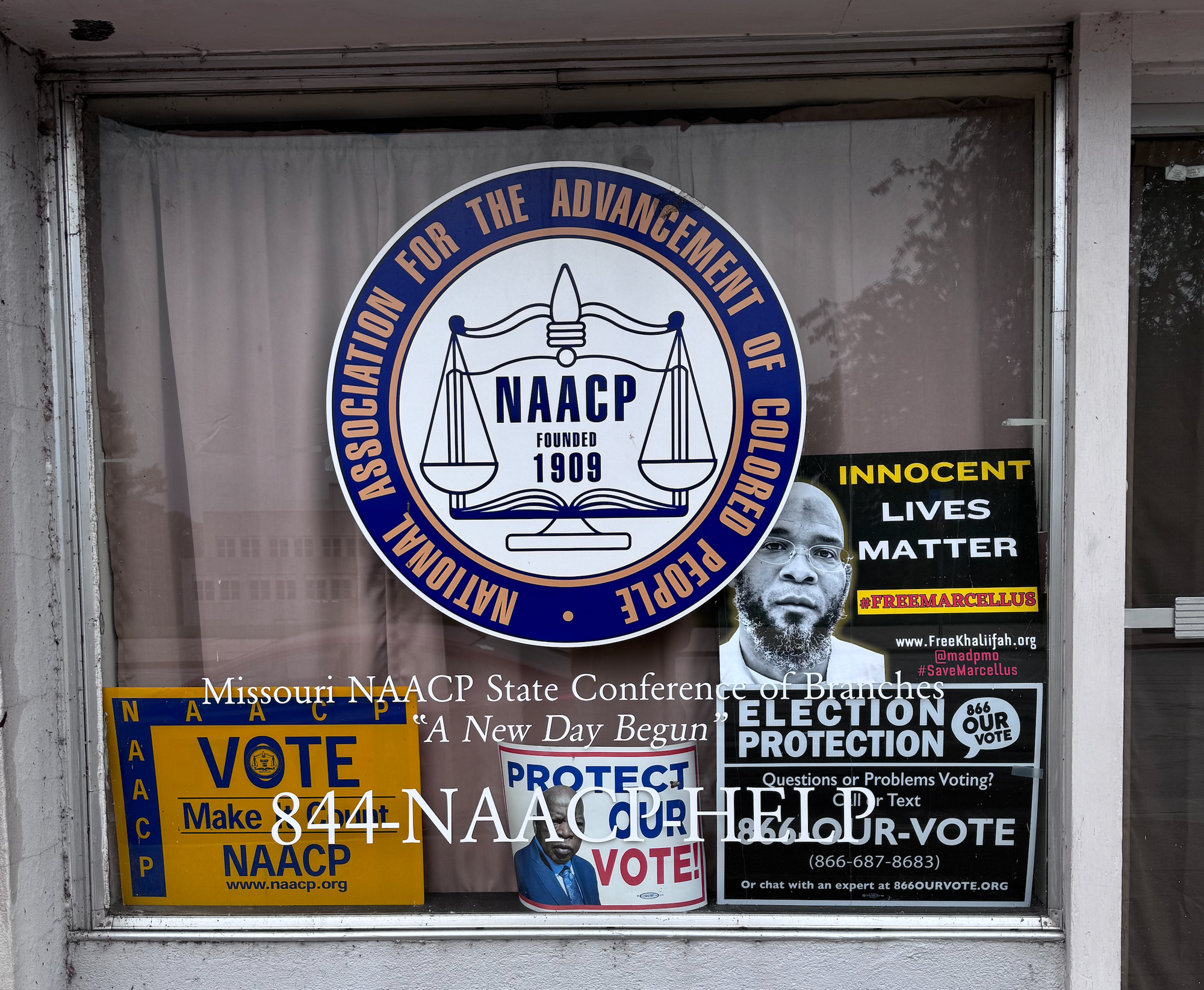
Michelle says to really understand what is going on, you have to be aware of this state’s history.
The reality is that Missouri is the south. And I often have to explain to people that even though geographically we may be situated in the midwest, the history, the traditions, how this state was founded — it is a very Southern state.
So when we look at the death penalty, the prison issues, the poverty and every ill that’s in this state, you find these same issues in places like Louisiana, Mississippi and Alabama. So that comes from a history of enslavement, a history of genocide, a history of the part of the country where all of these things were okay to do, and legislated even.
And so Missouri failed. Missouri was actually the last slave holding state, the last state to actually get rid of enslavement. And so that is one reason that our state still holds to things like the death penalty.
So we have a map of where lynchings were, and we can overlay it with a map of executions, and they match. So the places that were okay with lynching people — mostly black people — are today okay with executions.
So is just a regurgitation of a historic system that just changed the name. We went from state extrajudicial murders, lynchings, racial terror lynchings — now we call it the “death penalty” and “capital punishment”. And the government gets to do it.
That’s why it’s historic here. And that’s why places like Missouri, Alabama and Texas and some other states are so deeply set with this “Tough on crime, we’re going to punish you to death.”
The whole time we’ve been talking, Elyse Max, the other co-director of MADP, has been battling with the printer. She has hundreds of pages of signatures to print for a petition they’re dropping off at Governor Parson’s office tomorrow. “I just looked. There’s over 600,000 on the Innocence Project. So we’re over a million now!” she says.
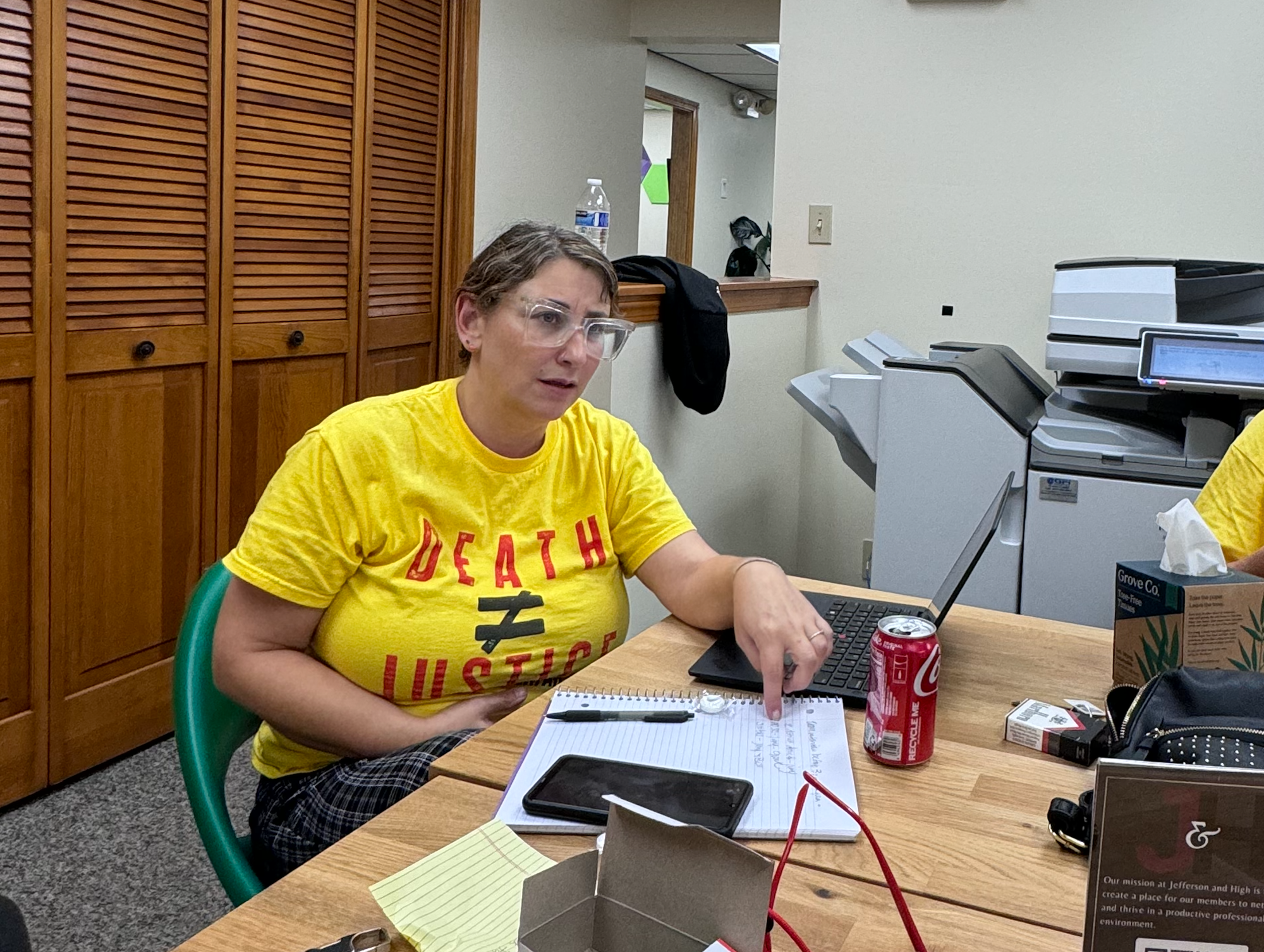
I ask why everyone is talking about this now, at this particular moment. I mean, Khaliifah has been on death row for years.
We’ve been fighting for Khaliifah since 2017. I think one thing is everyone was waiting for that decision to come out of Saint Louis County. So once that was denied, we were like, “Get the influencers in!” We knew which way things were rolling. So I think that was a huge turning point in this case. I mean, Missouri has executed innocent people. So the innocence claim isn’t unique, but the fact that the State Prosecutor is standing behind it is. So I think that is a huge thing.
As we wait to hear if the Supreme Court here will overrule the County Court, the signatures keep coming in. And apparently Governor Parson’s voicemail is full.
I give the number a try — she’s right. “If you would please leave your name, your phone number and a brief message we will get back to you as soon as we can,” says a robotic voice and a beep. “You cannot record a message for Governor Mike Parson. This mailbox is full.”
“And Khaliifah will be the 100th execution in Missouri… or possibly the 200th exoneration,” says Michelle as the message wraps up.
But exoneration is not looking good. It’s nearing 5pm, and St. Louis’s Supreme Court — which I can see out the window — just denied hearing the case.
It’s still raining outside, I go to the hotel and I sleep, but not very well.
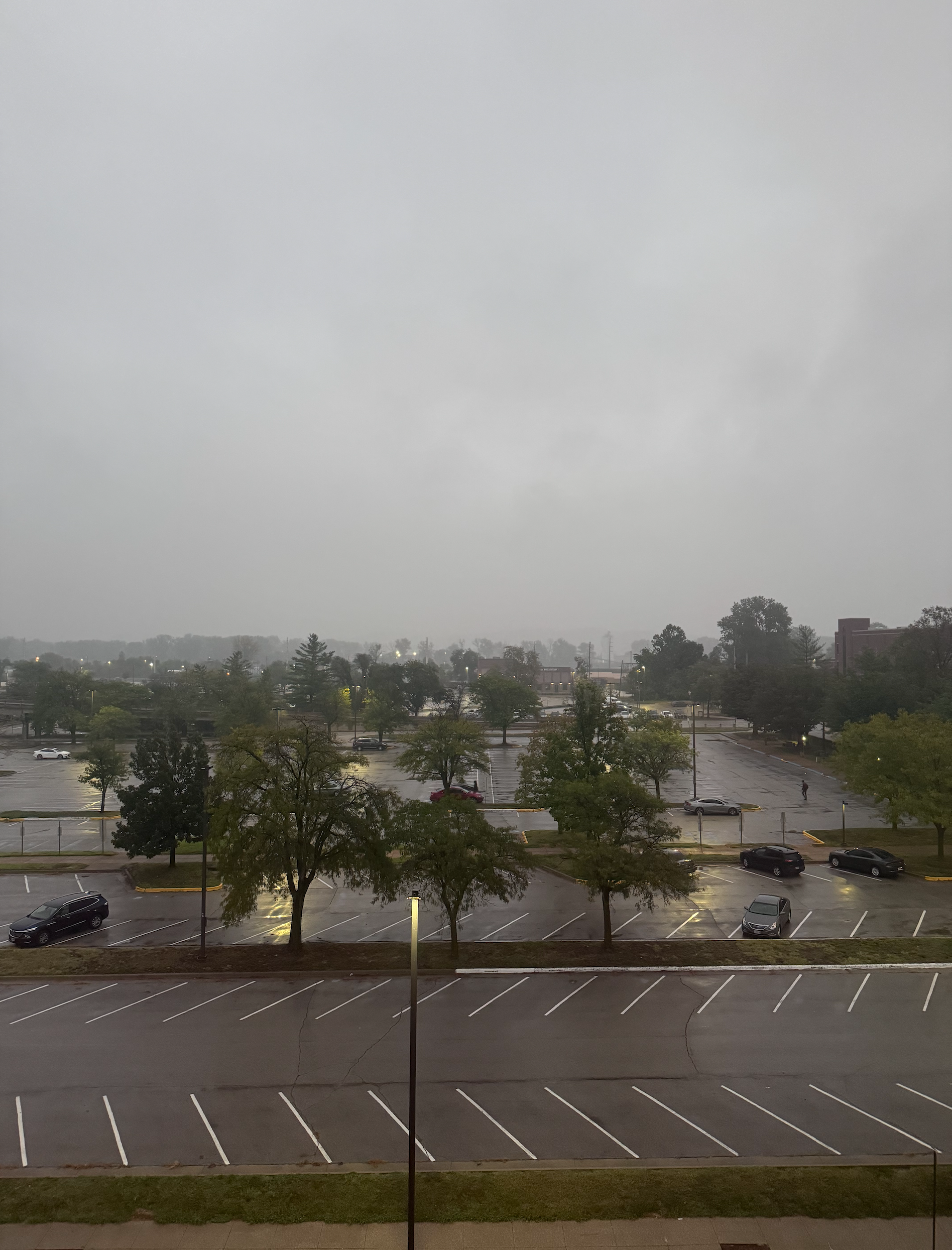
Execution Day
The next day, things are worse than I thought. Marcellus is due to be executed tonight, and as well as yesterday’s Supreme Court decision, Governor Parson has also directly said he will not grant clemency. Elyse looks despondent.
Yesterday was pretty rough. And Governor Parson and the Missouri Supreme Court came out about the same time, about 5pm, saying that clemency was denied. And I think that we are in power through mode. I mean, we were certainly emotional. There were definitely tears. There have been tears here all day.
But yeah, it was just kind of like, “It’s go time.”
And now that the Governor has definitely denied clemency, I think that means that we can talk about next steps. I mean, we walk on really thin ice while decisions are being made. But now I’m seeing like our partners on social media are explicitly calling him out for being a murderer, for being racist. And it’s time just to talk truth there.
Looking online, I’m not even sure Elyse has to call for this: people online are angry. There’s plenty of talk of racism already.
Meanwhile, new signatures for the petition have come in, including about 900,000 from The Innocence Project, a legal team helping death row inmates.
We are trying to make sure the governor knows just how huge this is. We have people who have been signing this petition since 2017. That’s how long we’ve been trying to save this life. I know it’s getting a lot of attention in the last couple of days. And we’ve gotten a lot of signatures in the last couple of days. But I like that this document we’re printing shows the history, and how deeply invested our state is in saving this life.
I ask if there are any legal avenues left, or if it all comes down to a white Governor changing his mind about killing a black man.
So there are two filings right now in the United States Supreme Court. We’re going to watch those closely. And clemency is just words out of the Governor’s mouth. He can change his mind. He can call the red phone next to the gurney at any moment. And in 2017, Khaliifah was on the gurney when the stay happened.
It’s six hours until Marcellus Williams will find himself strapped to a gurney again.
Elyse, Michelle and her team gather boxes and boxes of paper, hundreds of thousands of signatures — and we make the five minute walk to the State Capitol.
A Show of Solidarity
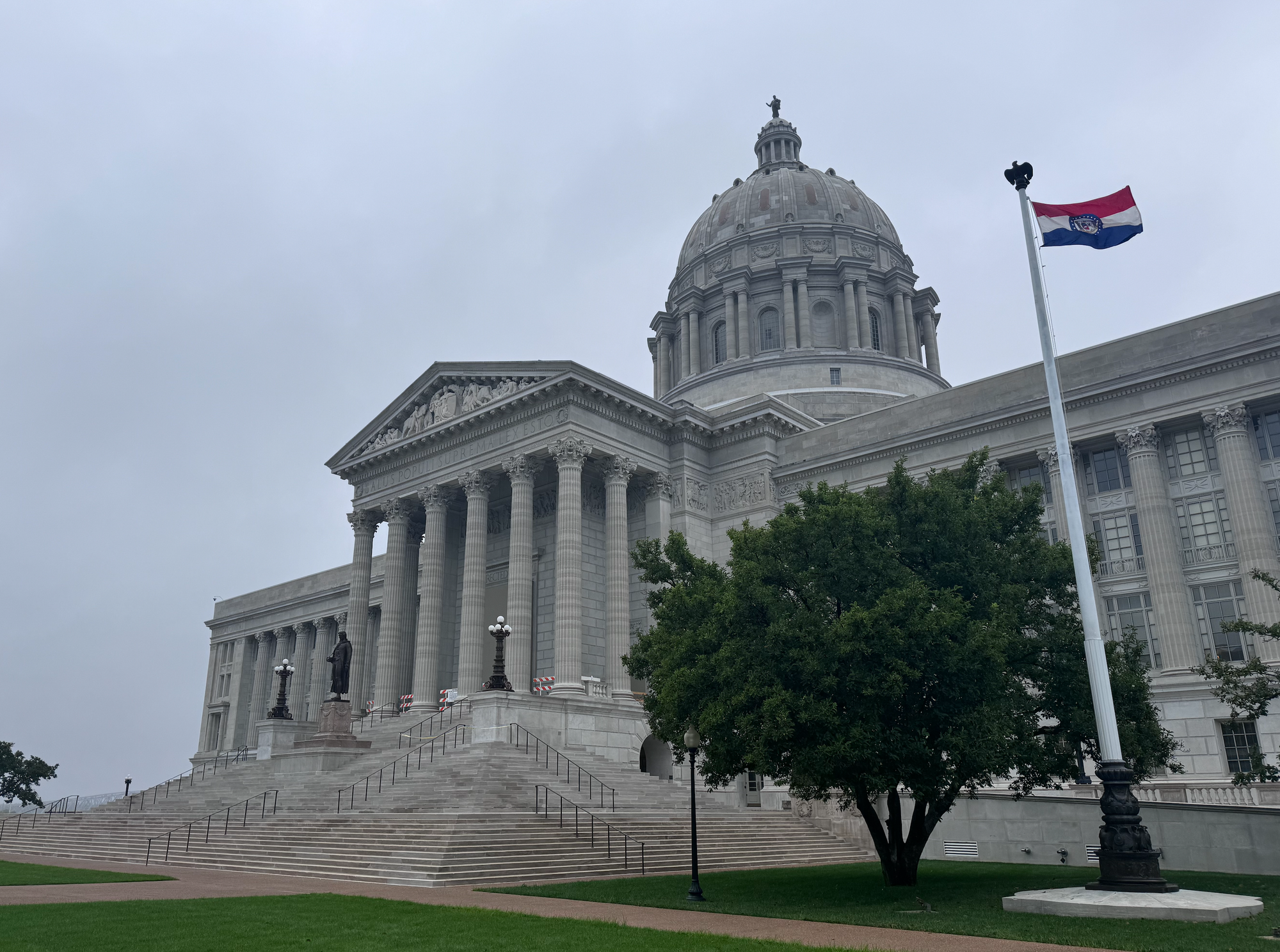
You pass through a security system to enter the Capitol building — a bit like an airport. Sort of.
“Fun fact — you can conceal carry in this building if you have a concealed carry permit,” whispers a woman next to me, who’s here with Jones Advocacy Group. Apparently there was a big fight over it a few years back… the end result being that the legislature can now open-carry on the floor.
Totally normal stuff in politics.
“Luckily, we haven’t had any incidents,” she continues. “We had one person who tried to bring in an entire duffel bag of weaponry, and he was stopped. And then he tried to go through a side door and he was stopped. So, you know, I’m here almost every day. I feel pretty safe. But I always keep in the back of my mind there are a lot of armed people in this building.”
After security is a big grand lobby. There are about 60 people here — all gathered to show their support for Marcellus, and their lack of support for the death penalty. There are also a bunch of journalists here, because this case has caught a lot of attention. Joe McLean is setting up his camera to film for tonight’s local news.
The whole time I’ve been in town, I’ve been embedded with activists who have been telling me how much they dislike Governor Parsons. But I realise I don’t really know all that much about him. I’d looked him up on Twitter, and he looks like most American politicians: Old, white, a bit overweight and sickly looking, drooping like a plant that hasn’t gotten enough sun.
I wanted to know about the political temperature of this man, so asked Joe.
So it’s important to understand about this current Governor is that he is a former sheriff. Coming from law enforcement, that informs a little bit about his perspective. He is a big supporter of law enforcement. He is a big law enforcement guy, So that obviously informs a little bit about him during his tenure. He has overseen 11 executions and he has not not stopped any of them.
Now defenders of the death penalty would argue that’s just because our justice system rendered ten capital punishment verdicts and none of them had any problems. On the other hand, you could argue Governor Parson didn’t intervene in the state execution.
So whatever opinion you hold, it’s a wide space between those two.
I ask for more context — not about Governor Parsons, but the ground I’m currently standing on.
So in Missouri, it’s become a very, very conservative state. We have a two thirds Republican majority. That’s a super majority. What that means is even if we had a Democratic governor who would veto something, it wouldn’t matter because the legislature could effectively render his veto moot. So that's what a supermajority means. We have one of those in the House and in the Senate, so both chambers have Republican supermajorities. So it's like Democrats don't control anything. That's how our state is right now.
I turn to a local who’d turned up to offer their support — she’s lived in Columbia since 1989. Right now, she’s annoyed.
There’s no physical evidence tying him to this crime. And the only evidence tying him to this crime was a report of an ex-girlfriend and another person who was in jail. So I think we need a higher standard of justice than Missouri is currently using. And we need to rehabilitate Missouri’s image in the national spotlight and the national conversation about the death penalty. Because we appear now to be people who do not care about what the truth is.
Suddenly the room hushes, and Michelle gets up to give a speech to those gathered. She goes on to share a poem from Marcellus — it’s a really good one — but at some point, my mind drifts.
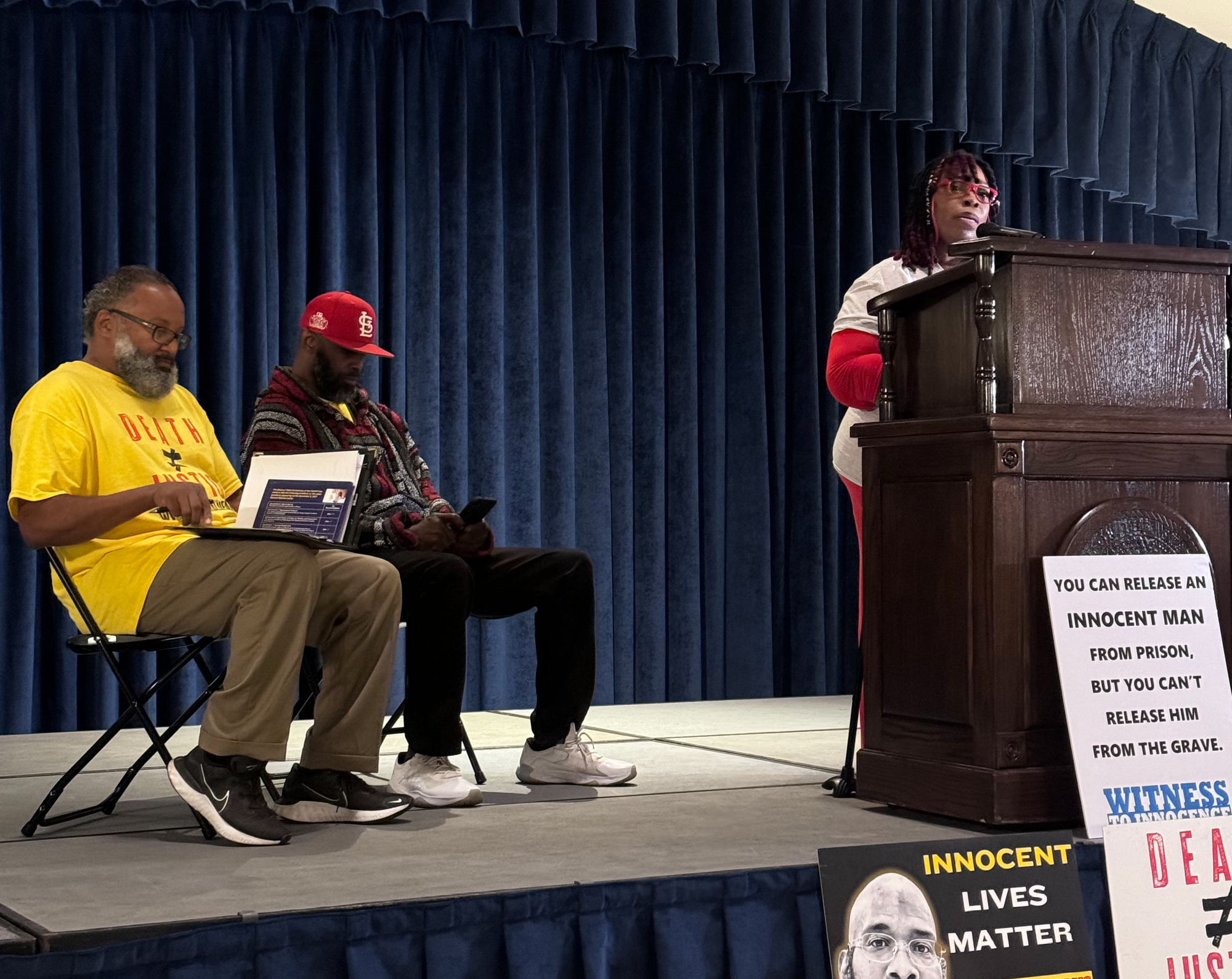
To me, there’s something so perverse about a system that priortises arbitrary rule-keeping over truth when it comes to the death penalty.
It’s like, “Sorry, the rules say you get this many appeals, and only in these specific situations.”
And despite how grim all this is looking, I still feel like at the last minute some reasonable part of “the system” would step in and say, “Wo wo wo... hang on!”
No one needs to say, “We shall let this man walk free immediately” but just maybe, “Hey, let's not kill him while there's some very real doubts here!”
As I’m thinking all this, I notice Elyse in a kind of quiet flurry off to the side of the room. I ask what's going on. “We might have just got a stay! We’re waiting to hear back from your attorneys…” she says in a hushed, but very excited voice.
It sinks in. “He might have got a stay” — as in Marcellus may have gotten a stay on his execution. I feel a flood of adrenaline. “Because something got filed in the Supreme Court that is remanding his Batson claim back to the Missouri Supreme Court and asking them to issue a stay. And I am not an attorney, and so I need confirmation of that before I make an announcement to these people today…” she says.
There’s hope radiating off Elyse. It’s the first time I’ve seen that look in her eyes. Someone from her team is on stage, whispering for Michelle to stall, to keep talking.
But, again — defeat.
“Gotcha,” she whispers after a colleague whispers in her ear. “Yeah. False alarm. This is how our days go,” Elyse says.
We all got excited because one of our trusted local reporters came over and was like, “I think I just got an order from the Supreme Court.” But it wasn't the order, it was another motion made by the legal team. So we all got confused for a minute. We’re all on that level of tenterhooks where it’s like every little thing is “jump into action”.
Because the hours are counting down.
Marcellus dies in five hours.
Eventually, the speeches from various community leaders wrap up, and boxes containing the petition are wheeled in. Those in the room form a line around the inside of the Capitol building, each grabbing a ream of paper.
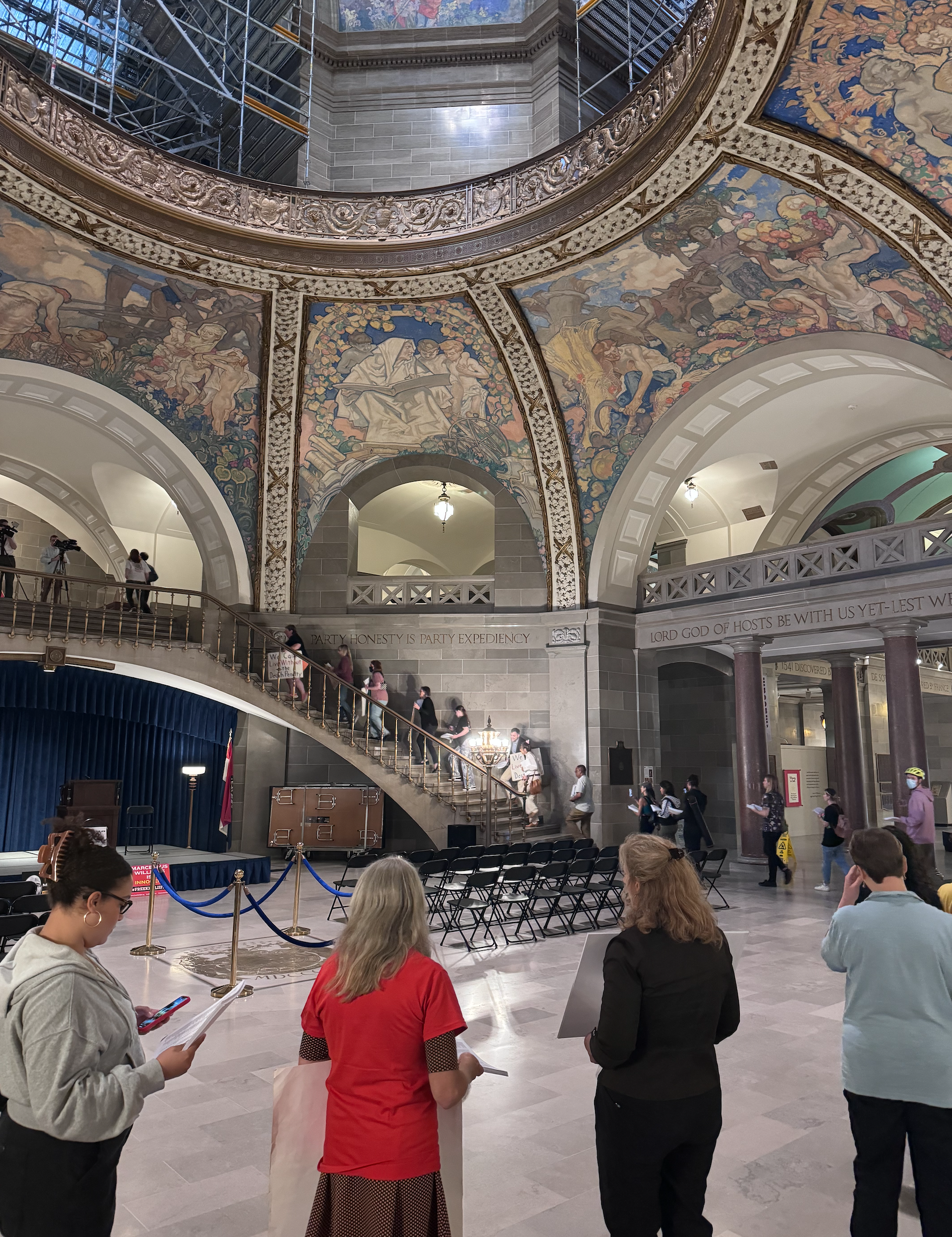
There are so, so many signatures.
The line slowly snakes its way up this grand staircase, and down the hallway to Governor Parson’s office. This was all organised in advance — it’s not a riot — and four very grim officials are waiting inside to receive the petition. Parson is nowhere to be seen, and I later find out he’s eating a lunch at the nearby Governor’s mansion.
It’s mostly quiet — but there are some outbursts. “All eyes are on you”, a woman yells. She’s joined by others. They’re upset and angry.
I get it.
Four hours and 5 minutes.
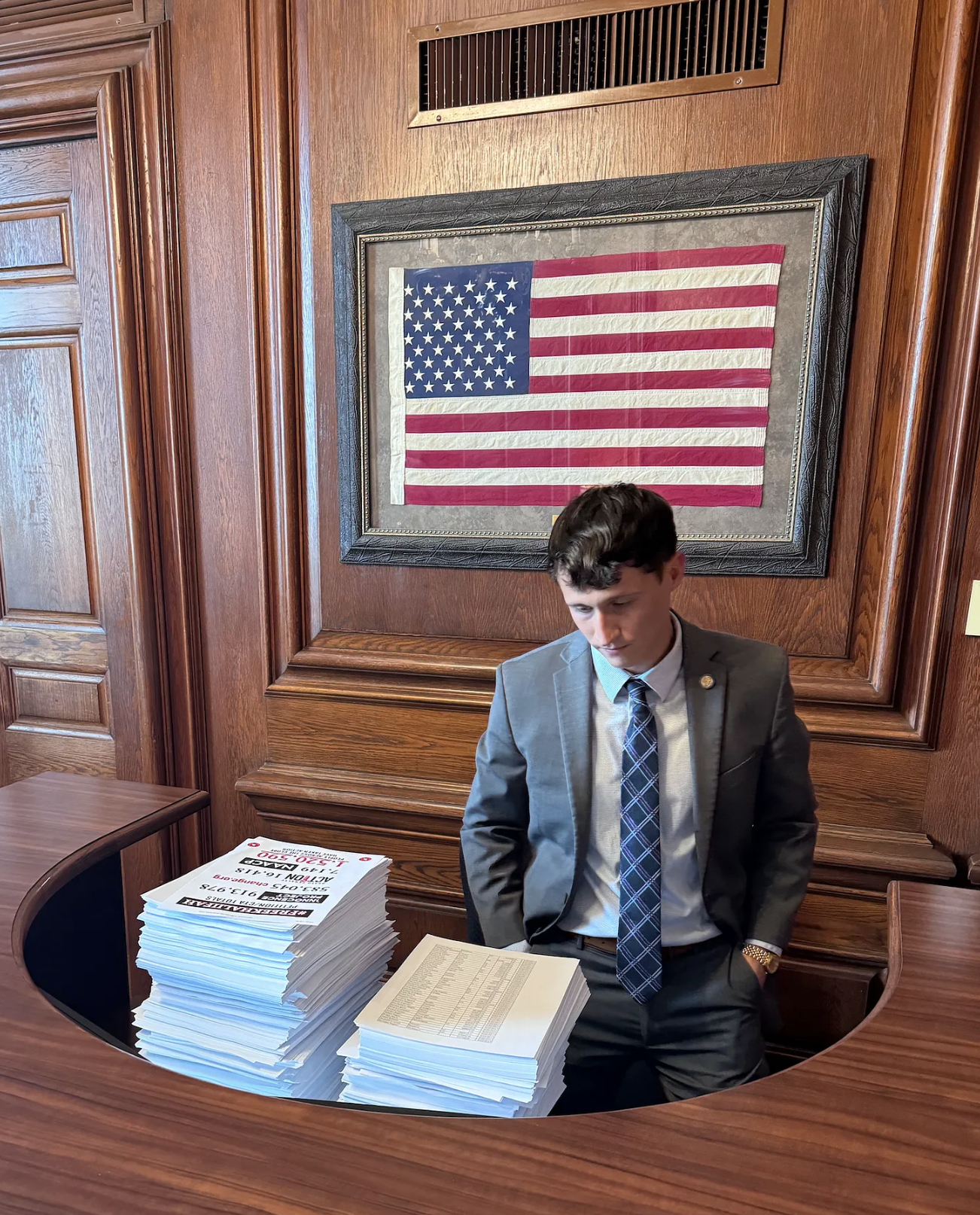
“It’s Just an Emotional Space”
It’s a three hour drive south east from Jefferson City to Bonne Terre, a small former mining town of about 6000 people.
They used the lead mine tailings to pave their roads, and the place is still full of chat piles. Lead contaminated a lot of the area — and the state advises people not to eat any fish they catch from the river.
Bonne Terre’s other main thing? The Eastern Reception, Diagnostic and Correctional Center, a roughly 3000-bed prison. It’s where Missouri carries out all of its executions.
Elyse tells me what to expect. This will be her 12th execution, so she knows the drill.
So you pull up to the prison and they rope off three areas. There’s an area for people against the execution, then a space between us, and then an area for people that support the execution
There have been times when there have been victim’s family members on that supporting side. We’ve exchanged words. We would usually send a faith leader over because they’re also experiencing trauma.
They’re in mourning. They’re reliving a traumatic murder that happened in their family. And so we aren’t there to offend them. So we offer our condolences to those family members. And sometimes they still want to attack us for being against the execution. But it's okay.
It’s just an emotional space.
Everything I feel on that drive to Bonne Terre feels trite and pointless to even talk about when I imagine what Marcellus and his family are going through. I dropped into this case a few days ago, knowing next to nothing. I am one of those people on social media who just heard about it, now feels a lot of feelings about it. What I feel hardly matters.
An hour out, and I’m off the freeways and onto small town roads. It strikes me how many churches there always seem to be in small town America.
Three of the small congregations I drive by have signs outside announcing they’re pro-life.
I think they’re probably fucking not.
Bonne Terre

As I pull into a grassed off area outside Bonne Terre Correctional Center, I’m greeted by seven men and one woman in camo gear and black bullet proof vests. Several of them are wearing black sunglasses, despite zero sun. It’s like the weirdest American movie.
They all have “CERT” emblazoned on their clothing in big white writing. I quickly Google it, discovering it stands for “Corrections Emergency Response Team”. They look about stern and grumpy as you’d imagine, and when I exit my car they just say, “Are you for or against?”
I don’t understand what they’re saying, then I remember what Elyse had told me.
I stammer and say, “Against.”
There’s some debate about where I stand. If I’m not recording, I can stand with all of Marcellus’ supporters in the roped-off “against” area, on prison grounds. If I keep my recording gear going, I have to stand on the other side of the road.
I wonder if this is normal, asking a local journalist who’s here to cover the execution. Zachary is young and kind looking, with a massive stills camera draped over his shoulder. I think he’s from the same St. Louis paper the victim, Lisha Gayle, worked for back in the late 90s.
I would say it’s not out of character for the Missouri Department of Corrections to give us these rules. It feels as if jails and prisons in the state of Missouri sort of operate in kind of a media black zone.
He goes on.
Something that I always think about as Missouri sort of exemplifies the most beautiful and the most horrible things in the United States, and it’s sort of amplified tenfold.
So in terms of nature and kindness — the people that exist here are really, really remarkable human beings who will do anything to help you. At the same time, we have rampant state and local corruption. Police departments are notoriously corrupt, especially in St. Louis.
We have some of the most absurd numbers in terms of violent crime and homicides. Buying a firearm is about as easy as buying a cheeseburger here. I feel like the state is just so out of control and wild.
It’s a really, really incredible place to be. I love it for all of its wonderful things and all of its glory. But also I feel sort of a responsibility being born and raised here, being a journalist, being a photographer, to highlight some of the issues that happen in this state.
It’s 5.30pm, and I see Elyse pull in. She looks wrecked. She makes her way across the road to deliver the bad news to me.
I was just at the gas station when I learnt everything’s been denied now. Scotus [the Supreme Court of the United States] has denied all the stays in motion. There’s nothing coming in the way of them murdering an innocent man tonight.
Back in 2017, Marcellus was in this same position: strapped down, the end near. A phone call, a stay, saved his life. I realise this time, that isn’t going to happen.
There are about five people with me on the roadside — mostly journalists, some members of the public, some live streaming. All black, all pissed.
I mean, two years ago, there was another gentleman that got put to death. I mean, the messed up part about Missouri is, is that it’s almost like, commonplace.
How can that be? How can that be? Are you going to take somebody like me that you unsure of? That’s crazy, man.
You can’t get a life back. You can’t. There’s no take backs.
My mind is crazy. We living in this modern day 2024 we all have to come on shore support for something that doesn’t even make sense, man. I drove 15 hours away from Washington, DC. I couldn’t just not do anything. I had to do something. I had to come out here and I had to show my support, man, because it’s insanity.
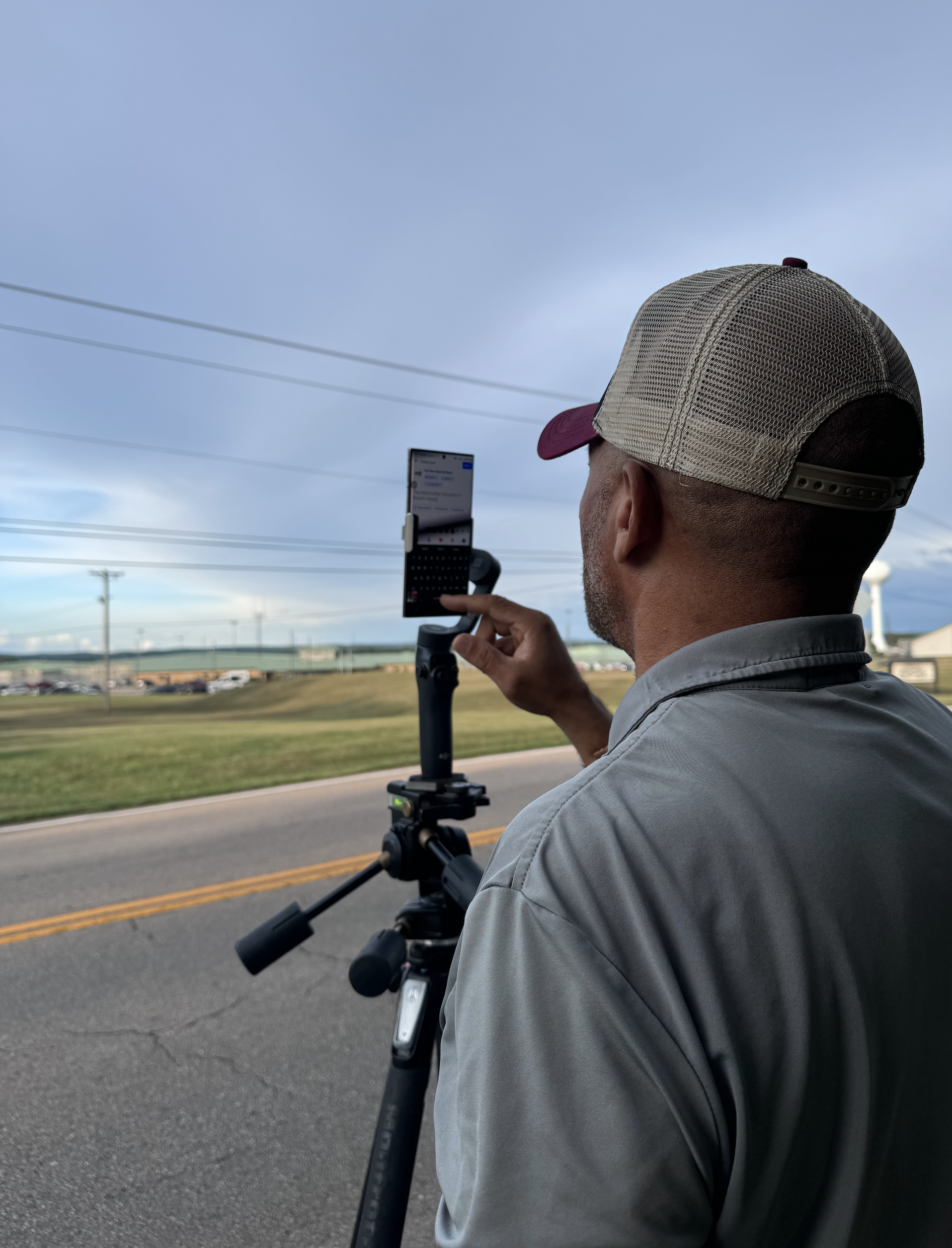
In all of this sadness and angst, I notice a new guy has appeared behind me. I realise he’s walked up the driveway of the house that’s behind us — the house across the road from the prison.
His name is Bill, he’s lived here for six years, and the view from his kitchen is the prison where Missouri does all its executions.
It’s not bad at all, to be honest. I’m American. I’ve got a half an arsenal [of weapons], and I’ve got a couple of big dogs, so I don’t worry too much. But to be fair, I’d rather not live across from where they're doing executions. Yeah, that’s… whatever. The prison itself, if anybody gets out, they’re not coming here.
What I find sort of shocking about Bill is just now unshocked — how blase — he is.
I feel shaken here right now. He’s just in his front yard.
Missouri has executed three, four people this year, I believe, if not more. And it’s like that almost every year. Some surprised me more than others. I would have actually expected a bigger turnout for this one. Usually there’s quite a bit more people than this.
I tell Bill that I’ve spent the last few days with people horrified about the death penalty. I ask where he stands on it.
You might be talking to the wrong American. If there is clean and clear evidence that somebody has committed a crime that there’s no rehabilitating from…?
And we’ve had one where a guy terminated two people with a hammer and then did unspeakable things to the corpse. And they were executed here. And I could have just as easily thrown a party for it. I mean, that’s not a person that comes back from that edge.
Capital punishment — I think there’s a time and place to be very honest. You know, you’re from New Zealand, and I don’t know your situation is — but if someone broke into your house and shot your family, would you shoot them back? I would. I wouldn’t hesitate.
I try to explain that I just don’t think punishment should involve killing someone. That if there is any risk that even one innocent person is put to death then the whole system has to be thrown out. It’s just not worth the risk.
It’s 5.50pm, and I say goodbye to Bill.
I walk back across the road, leaving my main recording kit in the car — showing those men in camo and sunglasses that I’m off the record.
I walk into the little roped off “against” area.
Not a single person is in the “for” area.
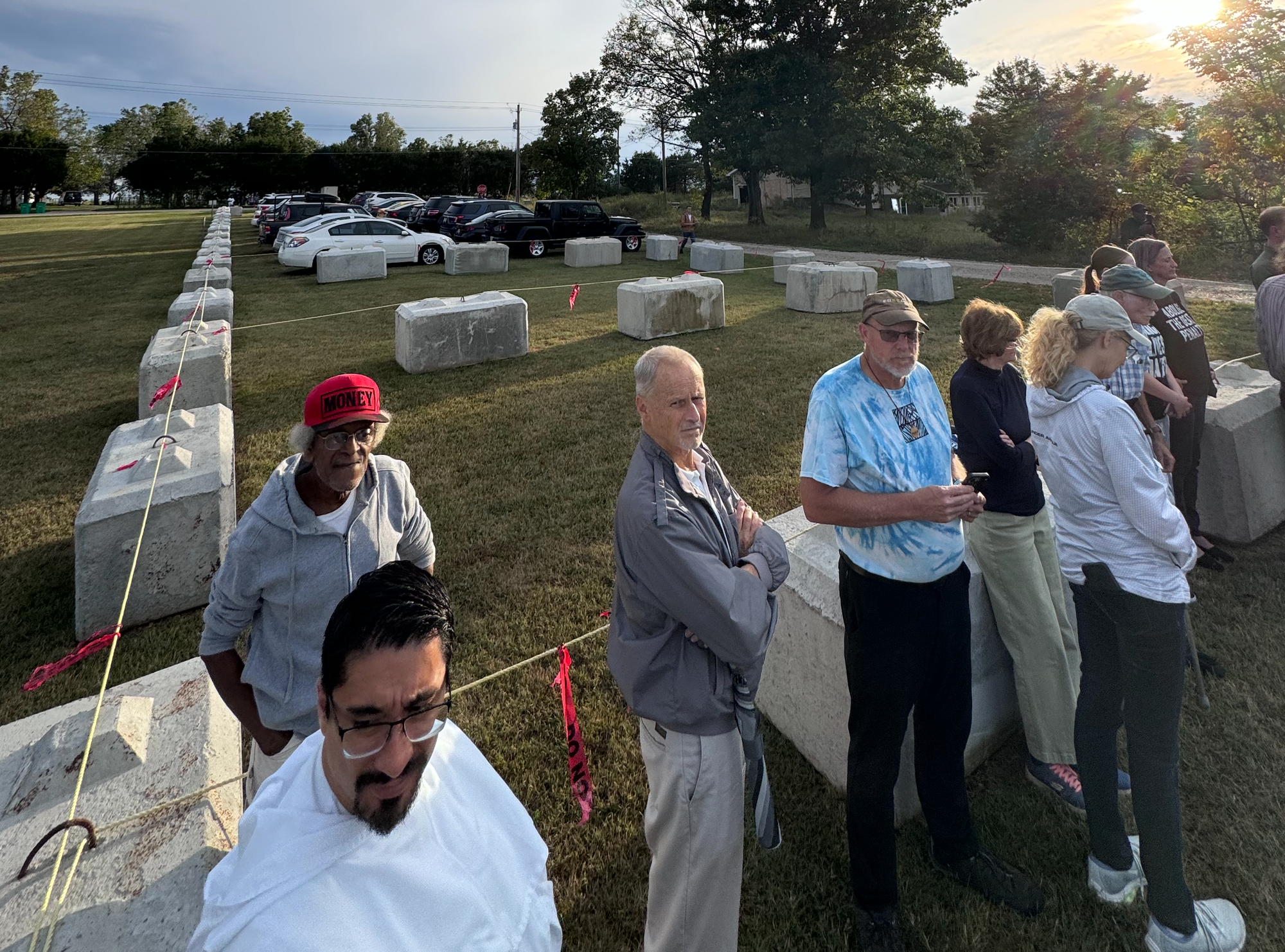
A Vigil and a Death
“This is terrible,” says Elyse. She’s kicking off the vigil, about 90 people crowded into the “against” area on the prison grounds.
I am out of words to say about this state murdering people. And for the third time, they will be murdering an innocent man. The world is watching.
As dark as today is, we owe it to Khaliifah to build a brighter future. And we are thankful to the St. Louis prosecuting attorney for his commitment to truth and justice, and all he did to try to prevent this unspeakable wrong.
And for the millions of people who signed petitions, made calls and shared Khaliifah’s story tonight, we all bear witness to Missouri’s grotesque exercise of state power. Let it not be in vain.
This should never happen.
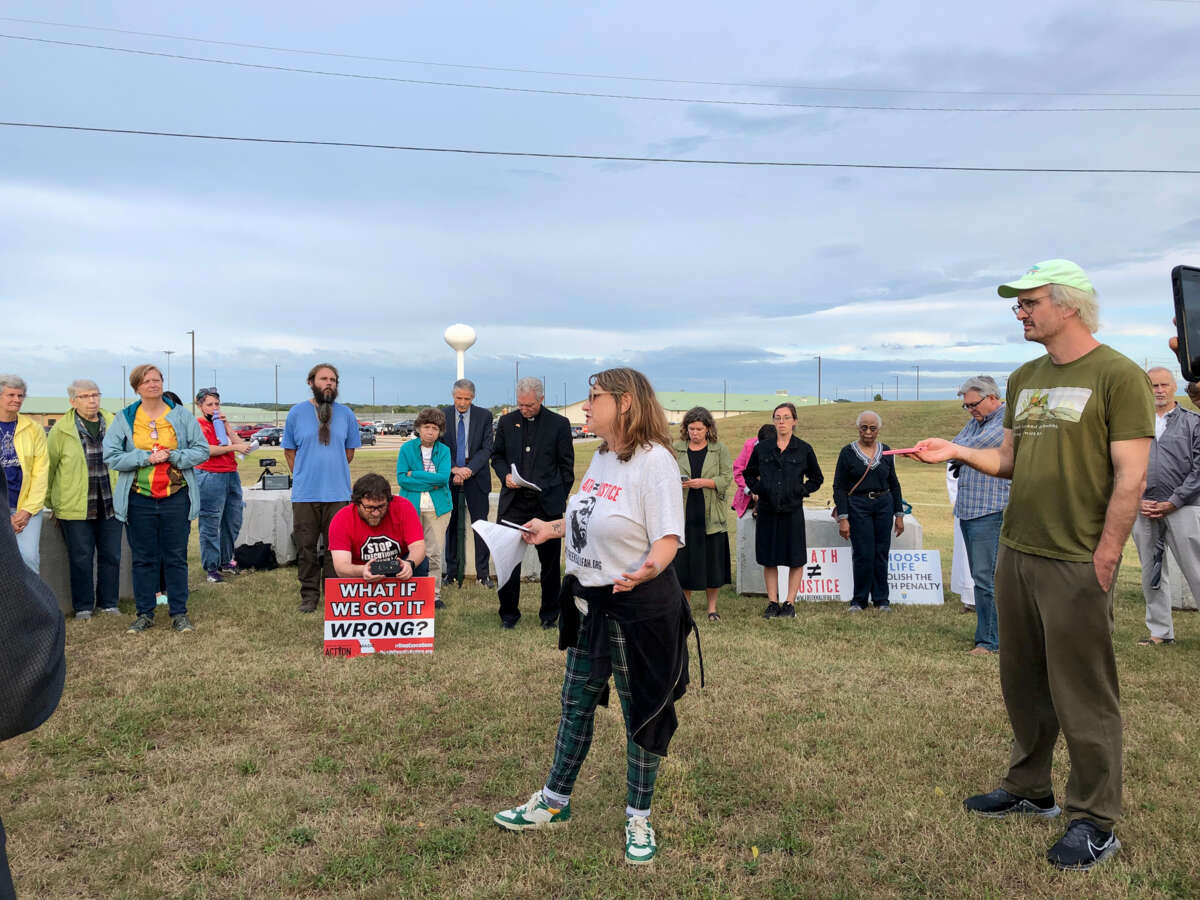
There are prayers outside the prison — a Jewish man prays, then a Muslim, then a Christian.
Inside, Marcellus Williams is being given a lethal injection.
That happens at 6.01pm.
Nine minutes later, he is dead.
His son and two lawyers are inside, witnessing the execution.
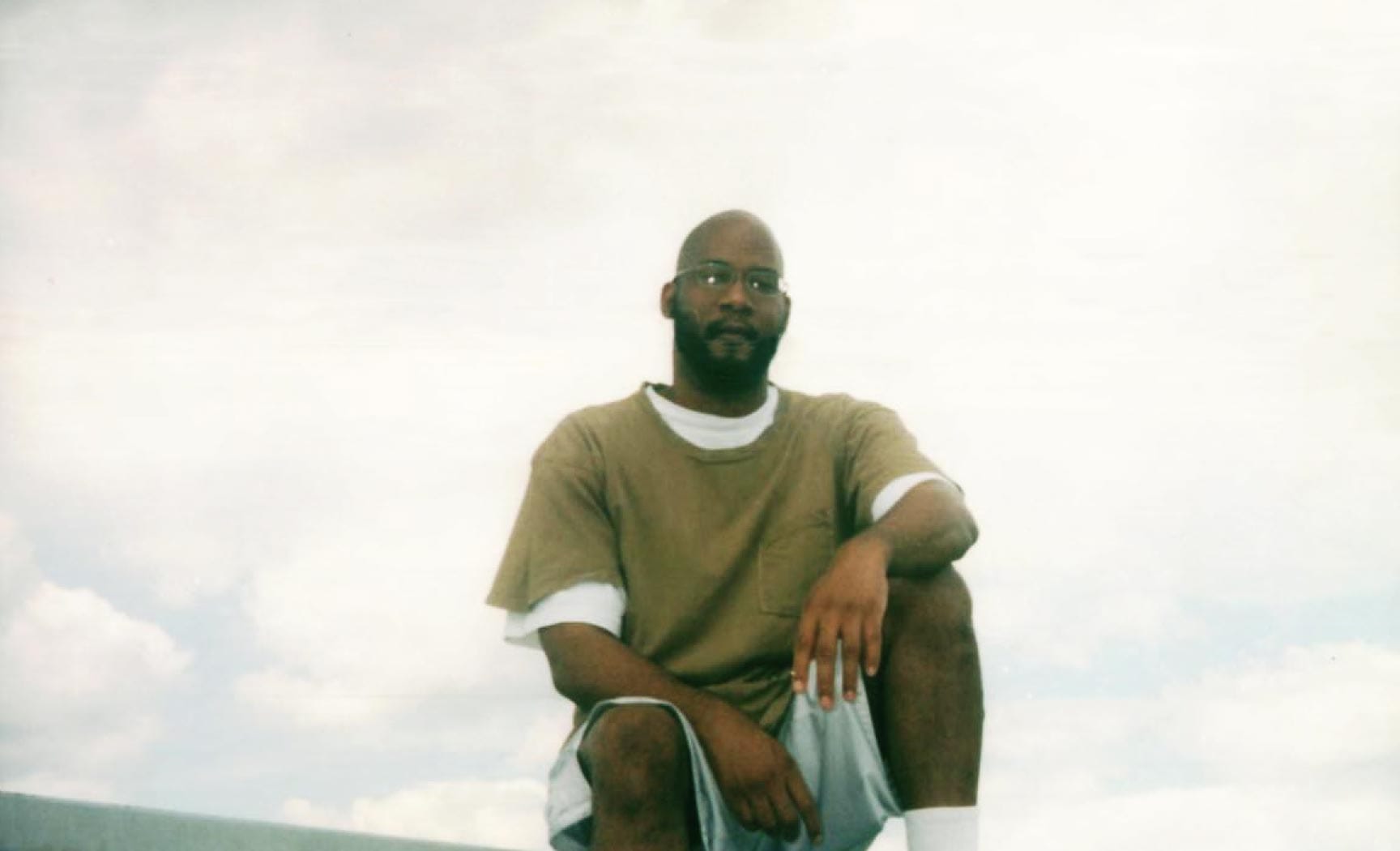
It’s been gray all day, but now, somehow, the sky has turned to deep purple and red. Afterwards, Elyse says the sky always seems to do crazy shit when someone is executed. She’s crying. We all are.
To my count, close to a hundred people gathered to mark the passing of Khaliifah.
By 7pm, most of them had moved on. I think many just wanted to get the fuck out of Bonne Terre.
I knew I did.
I’m about to leave, when I notice a big guy has joined those of us that remain. He has a knitted taqiyah perched on his head, and clocks my accent as I ramble on to someone.
“What are you from?” he asks, curious. “New Zealand,” I say.
And I realise it’s Marcellus Williams Jr., who just watched his father die.
I had no words, so I shut up and let him talk.
My father was an intelligent man. A beautiful man. And I love him, right? So this is what he wanted for me. I did things in my life that I wasn’t too proud of. But my dad’s last wishes — he wanted me to move forward in a positive space. So, that’s what I’m doing.
It’s easy for me, I’m telling you, to be — to be irate, irrational, upset. And it’s so easy for me to strike up a group of, like, a mini militia. But I’m not going to do that. You know, that’s not that’s not what we need right now. We need to come together and just push for peace.
Like, we just use this situation as our tool to go forward and live a better life. So we don’t have to go through things like this, and also to combat any wrongful conviction and injustice, because like I said, they get it wrong too many times.
Overall, at this point, I’m just following my dad’s wishes, just trying to push for peace, man. I don’t really want to indulge too much into the whole thing. But, you know, I just want everybody to like…
He trails off. He’s holding it together, but fuck — the sadness in his eyes.
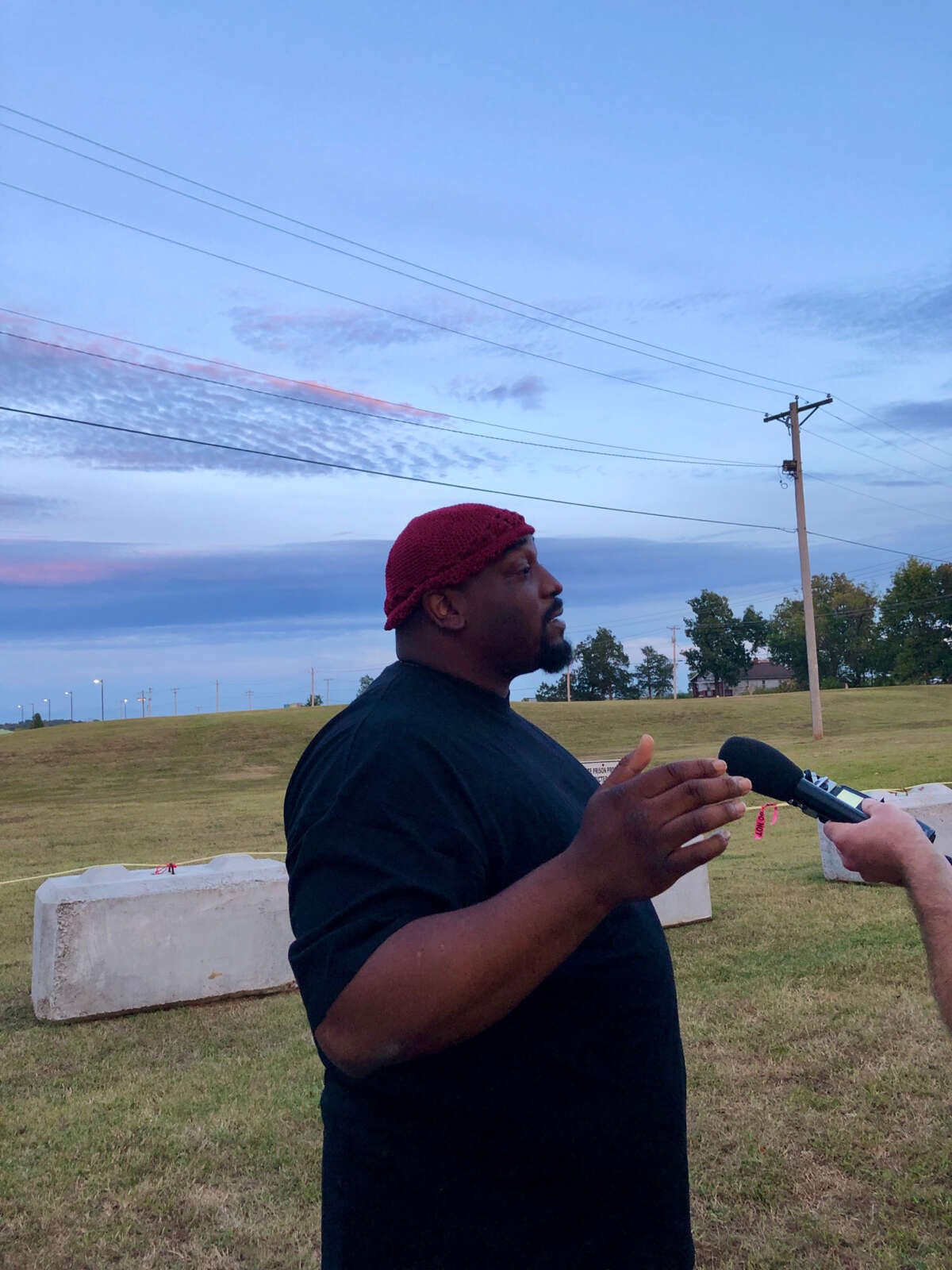
He asks if I am a father.
I tell him I have four amazing nieces.
Okay: so you’re a father figure. When you go back home, hug your nieces. Kiss your nieces. Buy them something nice, you know what I’m saying?
Because family is the most important thing, and a piece of mine just got murdered for something he didn’t do, you know what I am saying?
But I got to keep going for the rest of my family and my son.
It ain’t going to put a stain on my heart with what just happened. Because I know what my dad wanted, so we’re going to honor that.
Donate to Missourians To Abolish the Death Penalty (MADP) here.
Donate to the Innocence Project here.
Thanks for reading Webworm. Please feel free to share this post.
